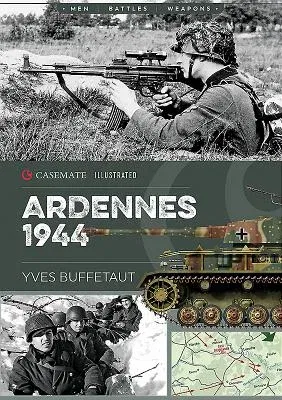German army deficiencies are often cited as the reason for the failure
of the German counteroffensive in the Ardennes region of France, Belgium
and Luxembourg in December of 1944 to January 1945 which the Germans
called Operation Wacht am Rhein, the Allies named the Ardennes
Counteroffensive, and was also commonly known as the Battle of the
Bulge. It is certainly true that the three German armies regrouped for
the offensive were in differing states; only the 5th Panzer Army was in
something resembling good condition, with the 6th and the 7th mediocre
at best. The divisions were also often not mobile enough because of the
lack of automotive equipment and were short on tanks and artillery. But
these cannot be considered the only reasons for the German failure: it
was also the speed of the Allied reaction, and especially the conduct of
the Americans, who experienced some of the fiercest combat of the war,
and suffered over 100,000 casualties.
This volume in the Casemate Illustrated series, with over 100
photographs and 24 color profiles describes in detail the different
events that caused the German defeat, from the beginning of the
offensive on December 16, 1944 to the retreat behind the Siegfried Line.
It looks at several topics in particular: the American resistance at St.
Vith; the resistance of the 101st Airborne in Bastogne; German obstinacy
in persisting with the siege at Bastogne; the airlift and the
intervention of the 9th US Air Force; the rapid regrouping of the 3rd US
Army; Patton's counterattack; the British counterattack; and finally how
the Allies failed to transform the German withdrawal into rout, missing
an opportunity to cross the Siegfried line and the Rhine on the heels of
the Germans, leading to an incomplete victory.

